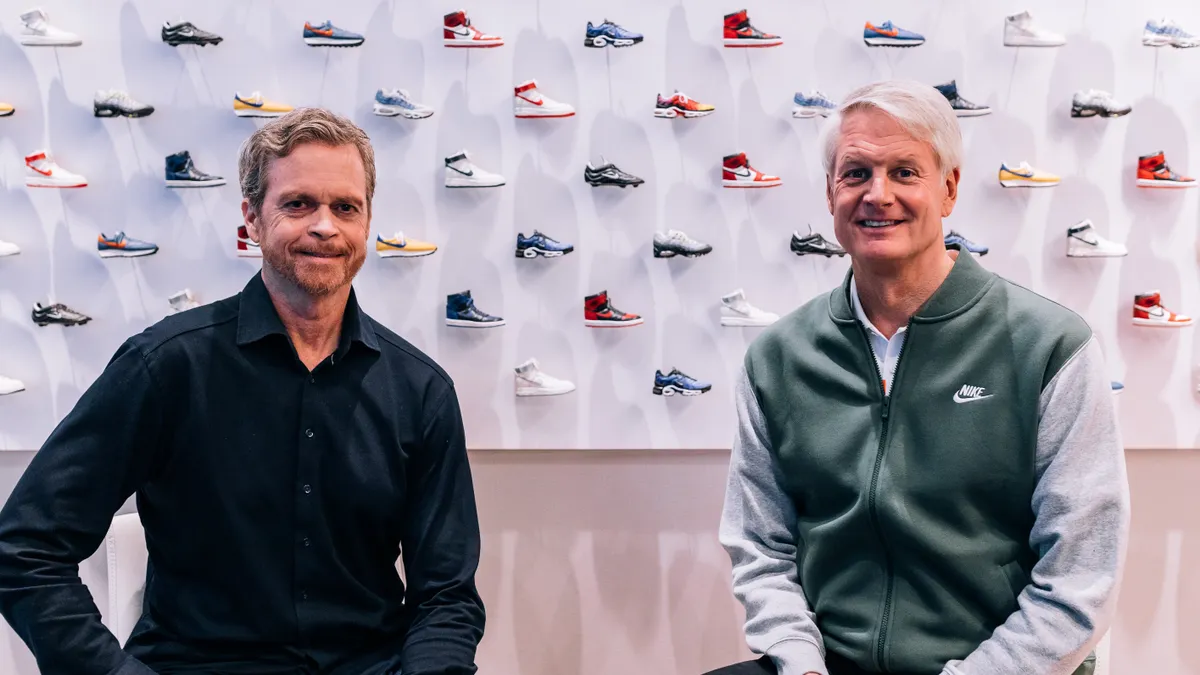So far in 2019, 1,332 chief executive officers have left their positions across industries. It is the highest number of CEO exits on record since Challenger, Gray & Christmas began tracking the data back in 2002, according to a press release the company sent to Retail Dive.
"Meanwhile, after a decade of expansion, companies that started ten years ago are finding themselves in a phase where new leadership is needed," Andrew Challenger, vice president of Challenger, Gray & Christmas, said in a statement.
What is it about 2019 that is pushing so many C-suite changes? One of the possibilities is that now, more than ever, CEOs are seen as the face of a company.
"The leaders of big organizations are like a walking, talking embodiment of the brand. Almost like the human billboard for the brand," said Deb Gabor, CEO and founder of Sol Marketing and author of "Irrational Loyalty: Building a Brand that Thrives in Turbulent Times." "When the brand faces problems, someone has to be held accountable, and the CEO is often like this very, very visible, sacrificial lamb."
Jono Bacon, founder and CEO of Jono Bacon Consulting and author of "People Powered: How Communities Can Supercharge Your Business, Brand, and Teams" agreed. "Some CEOs have very, very public personas. They're not just running a business. They're also seen as a thought leader, as a visionary behind what they're doing." Bacon explained that CEOs are focused on operational elements of running a business, but when a leader who is more in the limelight leaves, it can feel like a huge corporate shift. "Because it feels like it's not just an administrative change. It's like the lead singer of a band leaving. You're going to get a different voice."
Notable CEO exits from 2019
| Company Name | CEO Name | |
|---|---|---|
| Bluemercury (Macy's) | Marla Beck | |
| Calvin Klein | Steve Shiffman | |
| Chico's FAS Inc. | Shelly Broader | |
| David's Bridal | Scott Key | |
| Destination Maternity | Maria Ryan | |
| eBay | Devin Wenig | |
| Mattress Firm | Steve Sagner | |
| Overstock | Patrick Byrne | |
| Sur la Table | Billy May | |
| Tapestry | Victor Luis |
Source: Company press releases
In October alone, six CEOs in different industries left their roles after allegations of professional misconduct, according to Challenger, Gray & Christmas findings. When a brand hits a point of crisis, letting go of a CEO can be seen as a salve to calm both the public and shareholders. When a chief executive is asked to step down it is a way to demonstrate that, "continuing to have a relationship with this particular corporate leader is not what we want to show the world as a brand, or we don't align with their values and beliefs or their behaviors," Gabor said.
But, it doesn't mean that executive changes are all caused by, or a result of, scandal. Many times there is a corporate plan in place, or a leader feels like he or she has taken a company as far as their skillset will allow. "Companies that have done well are implementing succession plans that have long been in place," said Challenger in a previous statement. "Others are finding that regulatory uncertainty and new technologies changing how companies do business require leaders who can specifically address these issues."
While the complete list is long, here's a sampling of chief executives that left retail companies since January:
Jenny Fleiss, Jetblack
In late October, it was announced that Jenny Fleiss would step down as the head of Walmart's Jetblack concierge service. Coming in her stead is Nate Faust, co-founder of Jet, while Fleiss will stay on in an advisory role and will continue to act as a spokesperson for the company. The switch in leadership may be in anticipation of a future sale or spinoff of the Jetblack brand, which is reportedly losing between $10,000 to $15,000 on each member. Bloomberg reported in late September that Walmart had been in talks with potential buyers for the company, and at that time forecast Faust's future leadership role.
Fleiss has widely been viewed as a leader in the e-commerce space. She previously co-founded Rent the Runway with Jennifer Hyman in 2009, and later co-founded Jetblack.
Mark Parker, Nike
At the end of October, Nike announced that Mark Parker, who has been CEO of the company since 2006, will step down in early 2020, and will be replaced by Nike board member and former CEO of eBay, John Donahoe. Parker will stay on with the company in an executive chairman role.
Parker's tenure with the company is seen as a time of great prosperity for the company, with its most recent quarter bringing $10.7 billion in revenue, up 7% from the year prior. Parker also saw the rollout of the Nike Live members-only store, a concept that is seen by some as the next iteration of brand loyalty.
Parker also was at the helm as the brand faced intense scrutiny around its internal culture and criticism (and a class action lawsuit) regarding how it treats its female employees. In the spring of 2018, there was massive turnover at the corporate level, with around 10 top executives leaving the company within two months. In May of that year, Parker issued an apology to employees during a rare all-hands meeting at its headquarters.
Kevin Plank, Under Armour
Earlier on the same day as the CEO switch at Nike, it was revealed that Kevin Plank, who founded Under Armour in 1996 and who has acted as CEO since that time, would also be stepping down in January. President and Chief Operating Officer Patrik Frisk will step into the role. Although Plank will be dropping the CEO title on Jan. 1, he will still remain involved with the company as executive chairman and brand chief. The move was well received, with Wells Fargo analysts noting that they "believe that in order to take the company to the proverbial 'next level' they could use some new blood in the CEO seat."
In a story that runs in a similar trajectory to that of Nike, Under Armour faced criticism about internal culture. Last year it was revealed that employees were able to use their corporate cards on adult entertainment and gambling, a charge that ultimately led to the firing of two executives after an internal review. Following that incident, Plank promised a "meaningful culture transformation" at the company.
Earlier this month, the athletics retailer confirmed that it is under investigation by the Securities and Exchange Commission and the Justice Department over its accounting practices. CFO David Bergman stated in the company's latest earnings call that the investigations began in July 2017.
Steven Temares, Bed Bath & Beyond
Steven Temares' resignation from Bed Bath & Beyond as CEO came after weeks of pushback by activist investors. The group, which at the time included Legion Partners Holdings, Macellum Advisors GP and Ancora Advisors, demanded the removal of Temares, stating that he had "overseen the destruction of more than $8 billion in market value over his 15-year tenure." The company at the time criticized the activist investors' statements, but ultimately accepted Temares' resignation.
Board member Mary Winston was announced as the company's interim CEO following his departure. The company's net sales for the second quarter fell about 7.3% to $2.7 billion and it is currently working with outside sourcing firms as a means to cut hundreds of millions of dollars from its cost of goods. The retailer also announced that it expects to shutter 60 stores by the end of the fiscal year. Bed Bath & Beyond recently found a permanent CEO with the hiring of former Target Executive Vice President and Chief Merchandising Officer Mark Tritton in early October.
Hubert Joly, Best Buy
In April, it was announced that Chief Financial and Strategic Transformation Officer Corie Barry would replace CEO Hubert Joly in June as part of a planned leadership transition. Subsequently, Joly, who was also the Best Buy chairman, moved over to the newly created position of executive chairman of the board where he would, "continue to lead the board of directors while advising and supporting the CEO on key matters," according to a company statement at the time.
Joly, who came to the retailer in 2012, was seen as the catalyst for a Best Buy turnaround and pushed for the company to pull back on physical locations while he upgraded remaining stores. The company sites his leadership for improving customer satisfaction rates and increasing revenue growth and market share. Joly was also CEO when Best Buy made the bold decision to acquire health services company GreatCall for $800 million.























